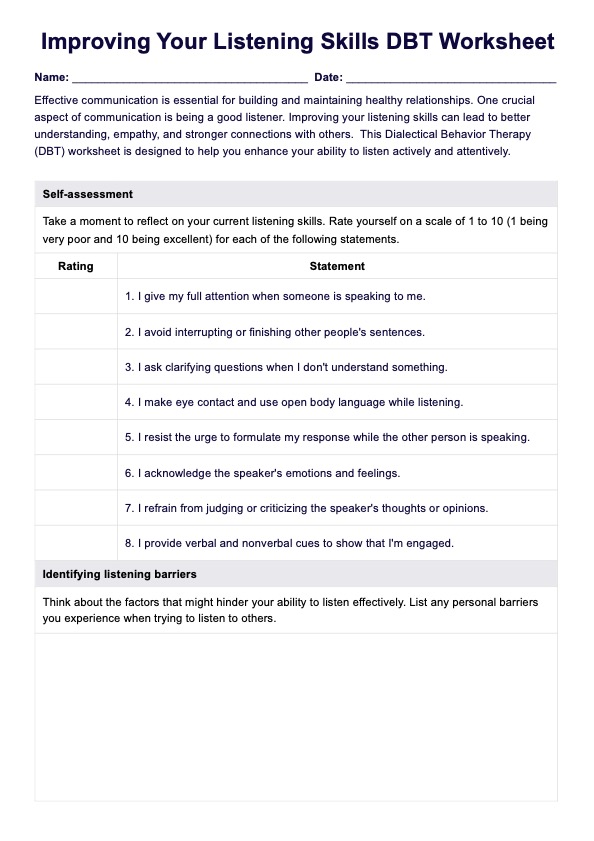The length of time it takes to complete the worksheet will depend on each individual's needs and goals. However, it is typically best to allow at least two sessions to complete the worksheet and discuss its contents in detail.

Improving Your Listening Skills DBT Worksheet
Use this Improving Your Listening Skills DBT Worksheet to help clients enhance current listening skills. Download the free PDF today.
Improving Your Listening Skills DBT Worksheet Template
Commonly asked questions
The worksheet is a great tool for helping people deepen their understanding of their own listening skills and the needs and perspectives of others. It can help individuals to develop a greater understanding of interpersonal dynamics, enhance their communication skills, and strengthen relationships with family members, friends, or coworkers.
This worksheet can be used to support therapy or self-improvement goals. It may be particularly helpful during times of personal crisis when communication skills are especially put to the test.
EHR and practice management software
Get started for free
*No credit card required
Free
$0/usd
Unlimited clients
Telehealth
1GB of storage
Client portal text
Automated billing and online payments











